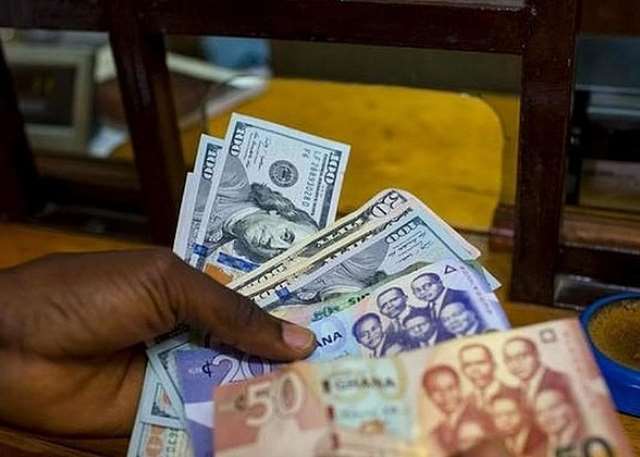The Ghanaian Cedi’s Performance Against Major Currencies: A Comprehensive Analysis
The Ghanaian cedi experienced a notable depreciation against the United States dollar on Wednesday, January 22, 2025. According to Cedirates.com, a reputable source for currency information in Ghana, the buying rate for the US dollar stood at GHS15.01, while the selling rate reached GHS15.49. This represents a decline of 5 pesewas and 8 pesewas, respectively, compared to the average rates observed on the previous day. This depreciation reflects the ongoing challenges faced by the cedi in maintaining its value against the stronger US dollar, a trend that has persisted for some time. Several factors contribute to this dynamic, including global economic conditions, domestic economic policies, and market sentiment.
The performance of the cedi against the US dollar varied across different exchange platforms. At forex bureaus, which offer exchange services directly to individuals, the cedi traded at a less favorable rate. Individuals seeking to exchange cedis for dollars faced a rate of GHS15.75, while those converting dollars to cedis received GHS16.20. This difference between the forex bureau rates and the interbank rates highlights the higher margins typically charged by these establishments. The interbank market, where banks trade currencies with each other, offered a slightly different picture. The buying rate for the US dollar stood at GHS15.01, while the selling rate was GHS15.03, indicating a narrower spread between the two rates. This reflects the higher volume and lower transaction costs associated with interbank trading.
The cedi’s performance against other major currencies, namely the British Pound and the Euro, also showed depreciation. Against the British Pound, the average buying rate was GHS18.38, while the selling rate was GHS19.06. Similarly, for the Euro, the average buying rate was GHS15.46, and the selling rate was GHS16.12. These figures indicate a weakening of the cedi against both currencies. The Bank of Ghana’s interbank rates for the Pound and Euro were GHS18.45 and GHS15.61, respectively, for selling transactions. These rates, while slightly different from the average market rates, still point towards a general trend of cedi depreciation.
Money transfer services, such as LemFi and Afriex, provided competitive exchange rates for remittances from the US or the UK to Ghana. For dollar transfers, LemFi offered a rate of GHS15.04 per dollar, while Afriex offered a slightly better rate of GHS15.00 per dollar. For pound transfers, LemFi’s rate was GHS18.44, and Afriex offered GHS19.41 per pound. The difference in rates between the two services reflects their respective pricing strategies and operating costs. For euro transfers, Afriex offered a rate of GHS15.63, while LemFi provided a rate of GHS15.55 per euro. These money transfer services offer a convenient and often cost-effective way to send money to Ghana, playing a significant role in the country’s economy.
For online subscriptions to services like Netflix, Spotify, and Apple Music, the exchange rates offered by Visa and Mastercard differed slightly. Visa offered a rate of GHS16.16 per US dollar, while Mastercard offered GHS16.21. These rates are generally higher than the interbank rates, reflecting the processing fees and other charges associated with international transactions. This difference in rates highlights the importance of comparing exchange rates across different payment methods before making international purchases.
In summary, the Ghanaian cedi experienced depreciation against major currencies on January 22, 2025. The rates varied across different exchange platforms, with forex bureaus offering less favorable rates compared to the interbank market. Money transfer services provided competitive rates for remittances, while credit card processors offered higher rates for online subscriptions. These fluctuations in exchange rates underscore the dynamic nature of the foreign exchange market and the influence of various factors on the cedi’s performance. Monitoring these rates is crucial for businesses, individuals, and policymakers to make informed financial decisions. The ongoing trend of cedi depreciation necessitates further analysis and potential interventions to stabilize the currency and mitigate its impact on the Ghanaian economy. Understanding the underlying causes of these fluctuations is essential for developing effective strategies to manage exchange rate risks and promote economic stability.


